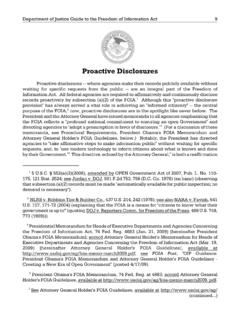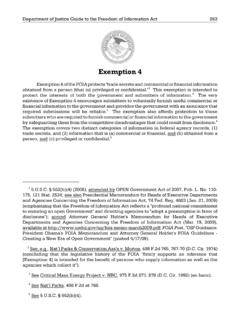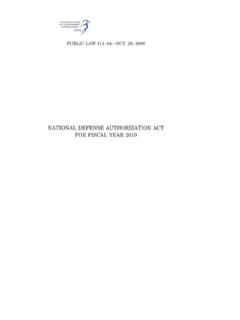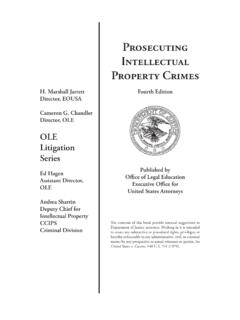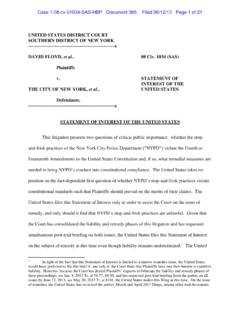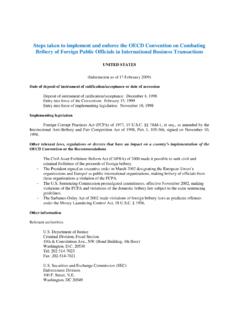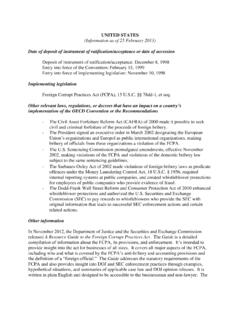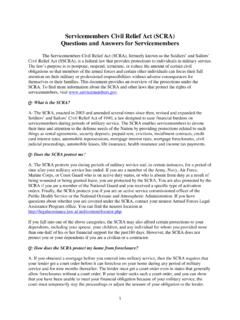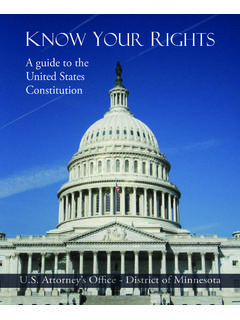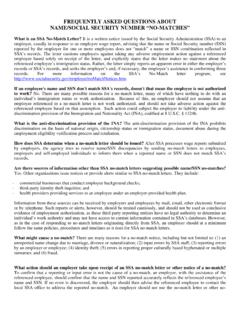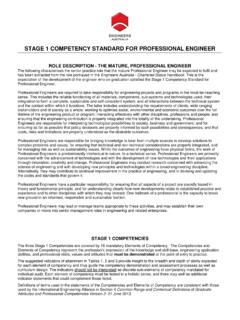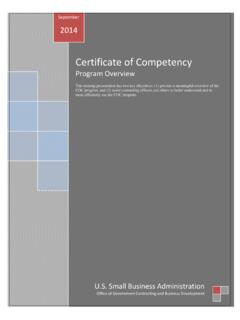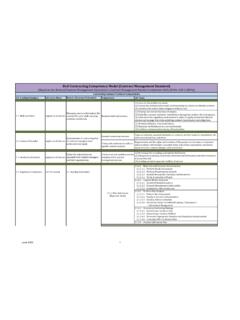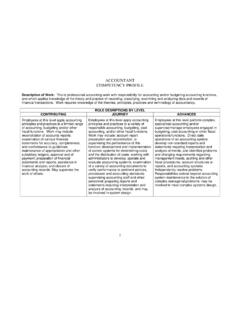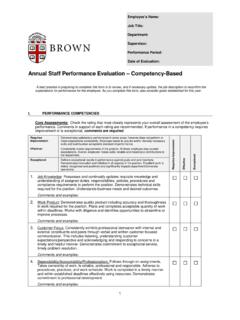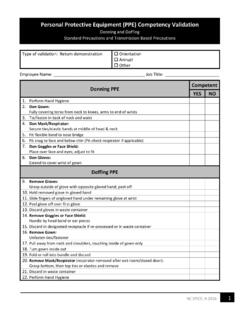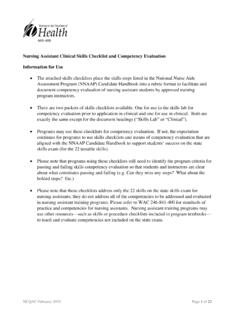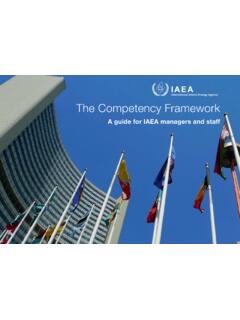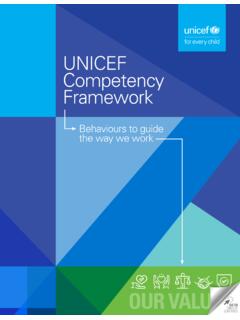Transcription of Defing and Assessing Competency to Stand Trial
1 DEFINING AND Assessing Competency TO Stand Trial Ronald Roesch, Patricia A. Zapf, Stephen L. Golding, and Jennifer L. Skeem Competency to Stand Trial is a concept of jurisprudence allowing the postponement of criminal proceedings for those defendants who are considered unable to participate in their defense on account of mental or physical disorder or retardation. Because Trial Competency issues are raised substantially more often than the insanity defense, psychologists involved in forensic assessment and consultation are likely to have frequent experience with it. It is estimated that between 25,000 and 39,000 Competency evaluations are conducted in the United States annually (Hoge et al., 1997; Steadman & Hartstone, 1983). Stated somewhat differently, between 2% and 8% of all felony defendants are referred for Competency evaluations (Bonnie, 1992; Golding, 1993; Hoge, Bonnie, Poythress, & Monahan, 1992).
2 Given a steady increase in felony arrest rates, the rate of Competency referrals is increasingly steadily as well. In this chapter, we will present an overview of Competency laws, research, and methods of assessment with the aim of providing forensic psychologists with the basic information they need to conduct Competency evaluations. We do not believe, however, that this chapter will sufficiently prepare a novice forensic psychologist to carry out such evaluations. As we will make clear, the issues surrounding a Competency determination are highly complex. An evaluator needs not only a high level of clinical knowledge and skills but also considerable knowledge of the legal system. We urge the reader interested in pursuing work in the Competency area to supplement this chapter with other materials ( , Bonnie, 1992, 1993; Grisso, 1992; Melton, Petrila, Poythress, & Slobogin, 1987; Ogloff, Wallace, & Otto, 1991; Roesch, Ogloff, & Golding, 1993; Roesch, Hart, & Zapf, 1996; Winick, 1995, 1996) as well as workshops and other forms of continuing education.
3 The Specialty Guidelines for Forensic Psychologists (Committee on Ethical Guidelines for Psychologists, 1991) also contain important practice standards for Competency evaluations. Defining Competency Provisions allowing for a delay of Trial because a defendant was incompetent to proceed have long been a part of the legal due process. English common law allowed for an arraignment, Trial , judgment, or execution of an alleged capital offender to be stayed if he or she "be(came) absolutely mad" (Hale, 1736, cited in Silten & Tulis, 1977, p. 1053). Over time, statutes have been created in the United States and Canada that have further defined and extended the common law practice (see Davis, 1994; Rogers & Mitchell, 1991; Verdun-Jones, 1981; and Webster, Menzies, & Jackson, 1982 for reviews of Canadian Competency law and practice).
4 The modern standard in law was established in Dusky v. United States (1960). Although the exact wording varies, all states use a variant of the Dusky standard to define Competency (Favole, 1983). In Dusky, the Supreme Court held that: It is not enough for the district judge to find that 'the defendant is oriented to time and place and has some recollection of events', but that the test must be whether he has sufficient present ability to consult with his lawyer with a reasonable degree of rational understanding -- and whether he has a rational as well as factual understanding of the proceedings against him. ( ) Although the concept of Competency to Stand Trial has been long established in law, its definition, as exemplified by the ambiguities of Dusky, has never been explicit. What is meant by "sufficient present ability"?
5 How does one determine whether a defendant "has a rational as well as factual understanding"? To be sure, some courts ( , Wieter v. Settle, 1960) and legislatures ( , Utah Code Annotated, 77-15-1 et seq., 1994) have provided some direction to evaluators in the form of articulated Dusky standards (discussed below), but the typical forensic evaluation is left largely unguided except by a common principle, in most published cases, that evaluators cannot reach a finding of incompetency independent of the facts of the legal case (an issue we will return to later). The problems in defining and Assessing Competency leads to a broad range of interpretations of the Dusky standard. Since the courts and legislatures have given mental health professionals a large share of the responsibility for defining and evaluating Competency , it should not be surprising to find that mental status issues such as presence or absence of psychosis have played (historically at least) a dominant role in the findings of evaluators.
6 In fact, evaluators initially involved in Assessing Competency seemed to equate psychosis with incompetency (Cooke, 1969; McGarry, 1965; Roesch & Golding, 1980). Furthermore, evaluators in the past rarely took into account the specific demands of a defendant's case. This has begun to change in recent years. Early evaluators were employed typically in state mental hospitals settings (the site of the majority of Competency evaluations at that time) and had no training either in the assessment of Competency or in matters of law. As a consequence, the evaluations were based on the same standard mental status examinations that had been used with other patients in the hospital. If psychological tests were used at all, they were used as a diagnostic tool to determine presence or absence of psychosis.
7 Over the past 20 years, these entrenched practices have been challenged and changed. Thus, research provided evidence that the presence of psychosis was not sufficient by itself for a finding of incompetency (Roesch & Golding, 1980), and modern empirical studies of Competency reports demonstrate that evaluators rarely make that simple conceptual error (Heilbrun & Collins, 1995; Nicholson, LaFortune, Norwood, & Roach, 1995; Skeem, Golding, Cohn, & Berge, 1997). However, while forensic evaluators today typically have more training than in the past, most states still do not require forensic evaluator training (Farkas, DeLeon, & Newman, 1996) and examiners are usually only "occasional experts" (Grisso, 1987). The specific psycholegal abilities required of a defendant are the most important aspect of Assessing fitness.
8 The contextual nature of competence has been explored by researchers in the area. Some researchers and scholars have argued that competence should be considered within the context in which it is to be used. For example, the abilities required by the defendant in his or her specific case should be taken into account when Assessing competence. This contextual perspective was summarized by Golding and Roesch (1988) as follows: Mere presence of severe disturbance (a psychopathological criterion) is only a threshold issue--it must be further demonstrated that such severe disturbance in this defendant, facing these charges, in light of existing evidence, anticipating the substantial effort of a particular attorney with a relationship of known characteristics, results in the defendant being unable to rationally assist the attorney or to comprehend the nature of the proceedings and their likely outcome.
9 (p. 79) The importance of a contextual determination of specific psycholegal abilities has been repeatedly demonstrated by empirical findings that assessed competencies in one area of functioning are rarely homogenous with competencies in other areas of functioning (Bonnie, 1992; Golding & Roesch, 1988; Grisso, Appelbaum, Mulvey, & Fletcher, 1995; Skeem et al., 1997). Recent Supreme Court decisions in both the United States and Canada, however, have confused this issue by finding that the standard by which Competency to be judged is not context-specific. In Whittle v. The Queen (1994) the Supreme Court of Canada ruled that there is to be only one standard for Competency regardless of the specific abilities to be performed by an accused. The Supreme Court of Canada concluded that there is no difference between the essential abilities needed in making active choices about waiving counsel, making decisions at Trial , confessing, or pleading guilty.
10 The Court ruled that different standards of Competency should not be applied for different aspects of criminal proceedings and that the test to be used is one of "limited cognitive capacity" (p. 567) in each of these circumstances. However, unlike Godinez v. Moran (1993; see below), the forensic examiners had actually evaluated Mr. Whittle in these specific contexts, regardless of whether or not the standard to be applied was the same or different as a function of the context. In Godinez v. Moran (1993), the United States Supreme Court held similarly that the standard for the various types of Competency ( , Competency to plead guilty, to waive counsel, to Stand Trial ) should be considered the same. Justice Thomas wrote for the majority: The standard adopted by the Ninth Circuit is whether a defendant who seeks to plead guilty or waive counsel has the capacity for "reasoned choice" among the alternative available to him.
